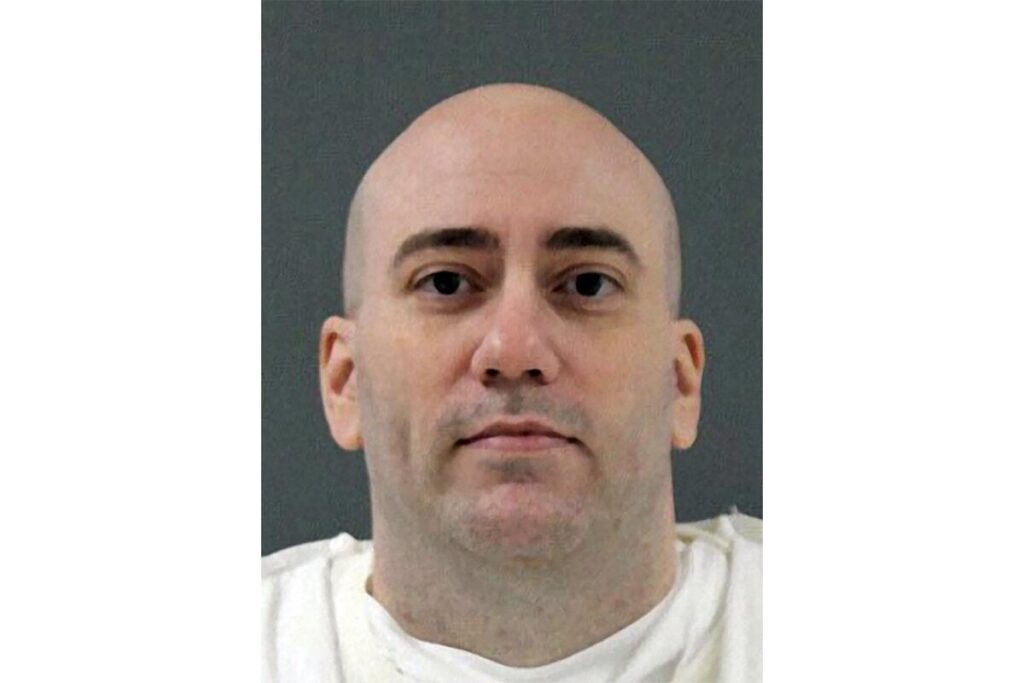Texas moved ahead with preparations to execute a condemned inmate on Tuesday in the hopes that the U.S. Supreme Court would lift a lower court’s stay and allow the lethal injection to proceed.
Jedidiah Murphy, 48, was sentenced to death for the October 2000 killing of 80-year-old Bertie Lee Cunningham during a carjacking.
The 5th U.S. Circuit Court of Appeals on Monday upheld a federal judge’s order from last week delaying the execution after Murphy’s lawyers questioned the evidence used to sentence him to death.
But the state attorney general’s office filed an appeal hours later asking the U.S. Supreme Court to overturn the stay and allow the execution to proceed at the state penitentiary in Huntsville.
Normal procedures for the day of an execution were still being followed on Tuesday with Murphy, including final visits, said Amanda Hernandez, a spokeswoman for the Texas Department of Criminal Justice.
Murphy admits that he killed Cunningham, who was from the Dallas suburb of Garland. But he denies that he committed two robberies and a kidnapping that prosecutors used to persuade jurors during the penalty phase of his trial that he would pose a future danger — a legal finding needed to secure a death sentence in Texas.
A federal judge in Austin issued a stay last week after Murphy’s lawyers filed a lawsuit seeking DNA testing of evidence presented at his 2001 trial. They argue the crimes were the strongest evidence prosecutors had to show Murphy would pose an ongoing threat, but that the evidence linking him to the crimes is problematic, including a questionable identification of Murphy by one of the victims.
Prosecutors have argued against the DNA testing, saying state law only allows for post-conviction testing of evidence related to guilt or innocence and not to a defendant’s sentence. They also called Murphy’s request for a stay “manipulative” and say it should have been filed years ago.
“A capital inmate who waits until the eleventh hour to raise long-available claims should not get to complain that he needs more time to litigate them,” the attorney general’s office wrote in its petition to the high court.
Prosecutors say the state presented “significant other evidence” to show that Murphy posed a future danger.
In upholding the execution stay, the 5th U.S. Circuit Court of Appeals said another case before it that was brought by a different Texas death row inmate raises similar issues and that it was best to wait for a ruling in that case.
Murphy has long expressed remorse for killing Cunningham.
“I wake up to my crime daily and I’ve never gone a day without sincere remorse for the hurt I’ve caused,” Murphy wrote in a message earlier this year he sent to Michael Zoosman, who had corresponded with Murphy and is co-founder of L’chaim! Jews Against the Death Penalty. Murphy is Jewish.
Last week, the Texas Board of Pardons and Paroles unanimously declined to commute Murphy’s death sentence to a lesser penalty or grant a six-month reprieve.
Murphy’s lawyers have said he also has a long history of mental illness, was abused as a child and was in and out of foster care.
“We should look to what rabbinic Judaism says about teshuvah, the which means repentance and about how if somebody is doing all that they can do to repent for their crimes, that should be given consideration. … But the reality is we don’t have a system that’s based on restorative justice. We have a system that’s based on retributive vengeance,” Zoosman said.
Murphy’s lawyers also had sought to stop his execution over allegations that the execution drugs the state would use on him are unsafe because they were exposed to extreme heat and smoke during an Aug. 25 fire at the Huntsville prison unit where they were stored. A judge denied that request.
If Murphy’s execution takes place, it would occur on World Day Against the Death Penalty, an annual day of advocacy by death penalty opponents.
About Author






